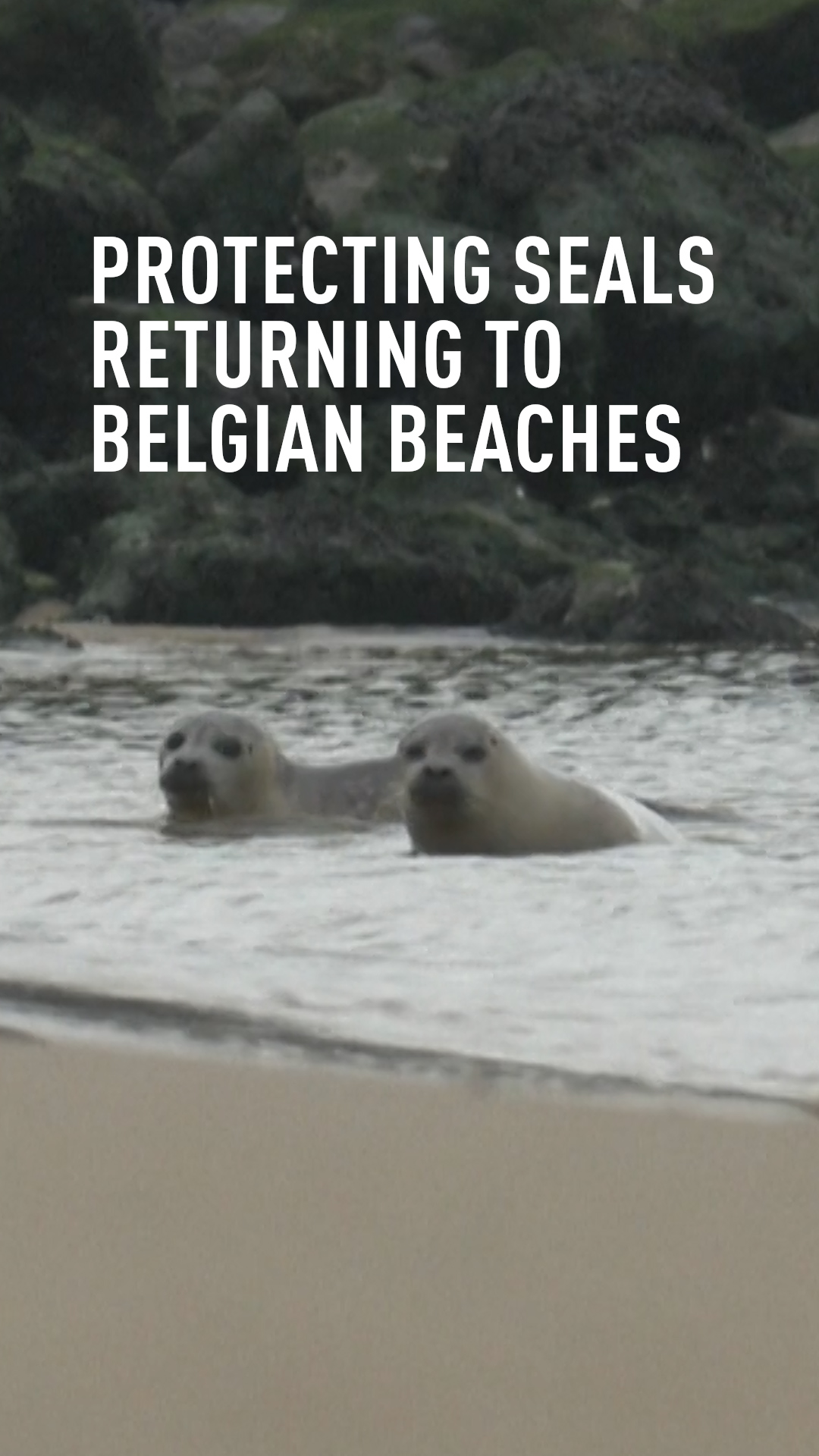00:57

Since the COVID-19 pandemic, seals have been appearing in growing numbers along Belgium's coastline.
Reassured by the calm and the fewer human visits during the first lockdown in 2020, the animals have taken a shine to the local beaches. But local walkers will have to learn to adapt.
Along the Ostend coast which faces the North Sea an association called the North Seal Team has set up patrols to monitor the behavior of people around the marine mammals.
The seals' new hangouts are roped off and dogs must be kept on a leash in the area, while volunteers in fluorescent orange jackets keep an eye over the stunned onlookers.
READ MORE
Hundreds of spotted seals seen at NE China reserve
Italy in UNESCO food protection bid
London's modern Shaolin, kung fu mom and young warrior
"We take turns all day long from seven in the morning to ten or eleven in the evening," says Inge de Bruycker, founder of the North Seal Team.
After the pandemic, the return of the walkers showed that cohabitation was not always easy. "Seals have bitten dogs, dogs have bitten seals... we don't want this to happen to people, especially not to children," said de Bruycker.
Created shortly after the first containment, the North Seal Team negotiated with the municipality to set up zones reserved for seals and established rules: a minimum distance of thirty meters from the animals and no feeding them.

A seal rests on the beach in Ostend where volunteers from the North Seal Team protect them. /John Thys/AFP
A seal rests on the beach in Ostend where volunteers from the North Seal Team protect them. /John Thys/AFP
"At the beginning of their lives, the pups - the name given to the baby seals - must stay on the beach for a few days until they are hungry. If they are given food, they will not go into the sea and learn to hunt," says Kelle Moreau, a marine biologist and spokesperson for the Royal Belgian Institute of Natural Sciences.
Since the pandemic "the seals have become accustomed to coming to rest on these beaches and people are usually happy when they see them, they want to pet them, take selfies," Moreau added.
Some people, thinking incorrectly that the animals are stranded, even try to put them back in the water.
Moreau estimates that the population of seals near the Belgian coast - belonging to two species: grey seals and harbour seals - now ranges between 100 and 200.
More seals saved
About 20 km from Ostend, the Sea Life Center in Blankenberge takes care of injured seals.
Since the creation of the North Seal Team, the center receives an increasing number of calls from volunteers of the association and from informed walkers, who communicate via WhatsApp groups.
"They send us images of the animals and we decide whether to intervene or not," says Steve Vermote, the organization's executive director. While most are released after two months, some, like Lily, a blind female, are taken in indefinitely by the center.
In 2022, Sea Life treated twelve grey seals and three harbor seals. The center has also taken in several individuals with scars around their necks, probably caused by a gillnet or trammel net.
This net, which is inconspicuous and static, has been the cause of a spike in mortality among seals and porpoises.
"In 2021, this type of incidental fish capture was found to be the cause of death of several dozen stranded seals," reports the Royal Belgian Institute of Natural Sciences in a report published on Thursday.
The finding led to a change in Belgian legislation, which now prohibits this technique for recreational fishing.
In 2022, 54 dead seals were washed up on the beach, according to the Institute's report. That's half as many as in 2021.
This is proof, according to Moreau, that the change in legislation has worked. And that cohabitation between humans and these marine mammals can improve.
Subscribe to Storyboard: A weekly newsletter bringing you the best of CGTN every Friday
Source(s): AFP